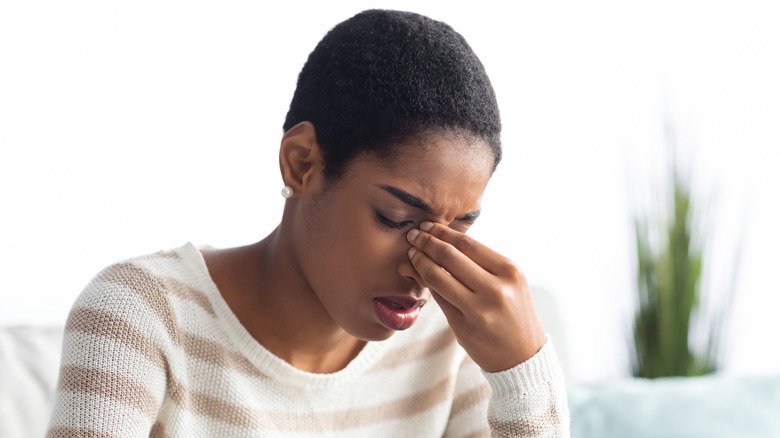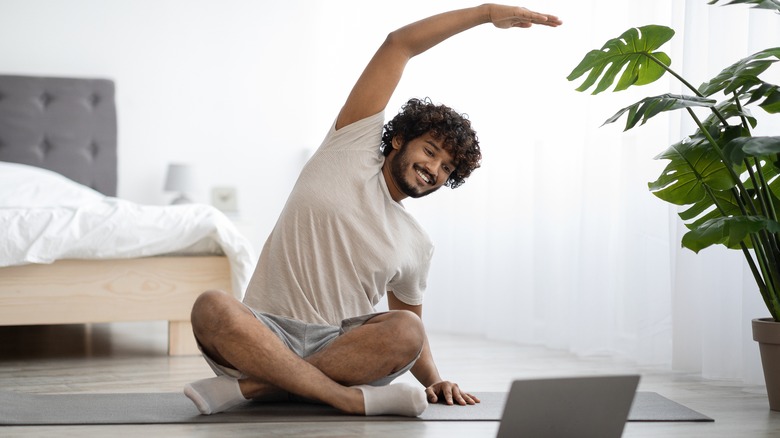Can Exercise Help Relieve Sinus Pressure?
Nothing makes you want to curl up in bed and hibernate for the winter more than a sinus infection. As if sneezing, coughing, congestion, runny nose, headache, and fatigue weren't already enough, additional symptoms of a sinus infection can include fever, loss of smell, as well as pain within the cheeks, forehead, upper teeth, or between the eyes, amongst other places (via Detroit Sinus Center). Otherwise referred to as rhinosinusitis, a sinus infection strikes when our sinuses become clogged with fluid, resulting in inflammation or infection of the nasal cavities.
Whether prompted by a viral infection, allergy season, or otherwise, at-home tactics for treating sinus infections generally center around trying to alleviate symptoms as the body heals. This can include the use of saline sprays, taking a steamy shower, or keeping the head at an angle when sleeping at night for optimal breathing, reports Healthline. Among these different remedies used to relieve sinus pressure, can exercise also be one of them? While some experts suggest that light exercise can help relieve the discomfort of sinus pressure, it's important to note that certain types of physical activity are better for the condition than others. In fact, Kaplan Sinus Relief outlines that while some forms of exercise can be beneficial for our nasal passages, others may further aggravate symptoms or worsen the infection.
Try walking, yoga, or pilates
The boost in circulation and body temperature we receive when engaging in moderate physical activity can help break up congestion and relieve sinus pressure by prompting the flow of mucus, explain the experts at the Detroit Sinus Center. In addition, a little light exercise can also help increase our white blood cell count, which further enables our body to combat illness. Furthermore, Kaplan Sinus Relief adds that physical activity also stimulates adrenaline production, a hormone that plays a role in blood vessel contraction, which can help minimize swelling related to sinus infections.
So what types of exercise are best for individuals dealing with sinus pressure? Opt for yoga, pilates, or short-distance walking. Conversely, you'll want to steer clear of running, weight lifting, or swimming. Sinus infections can increase our susceptibility to dizziness, chest pressure, and dehydration, and these more intense forms of physical activity can further increase that risk (per Detroit Sinus Center). Additionally, be mindful of any exercises that require bending over, as this may exacerbate headache pain, according to Kaplan Sinus Relief. However, if your sinus pressure symptoms persist for more than seven days or become more severe, Healthline suggests consulting with a physician, as prescription antibiotics may be warranted.


